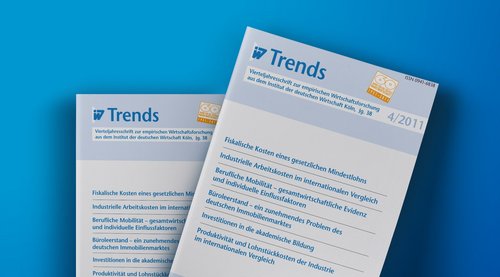In 2010, the unit labor cost position of Germany’s manufacturing industry recovered significantly. It is still well above the pre-crisis level, however. In the period from 2007 to 2010, which includes the economic downturn in 2008 and 2009 and the recovery in 2010, German unit labor costs rose by 5.9 percent on average – the sharpest increase of all countries compared. The reason for this upward surge is the slump in productivity as a result of collapsing demand during the global economic crisis while the employment level remained almost unchanged. Nevertheless, the German productivity level is still fairly high leaving its competitors by 13 percent behind. This gap is not big enough, however, to compensate for Germany’s high labor costs. In 2010, the country ranked fifth in terms of unit labor costs, together with Norway. Here Germany’s competitors had a cost advantage of 12 percent on average.

International Comparison of Productivity and Unit Labor Costs

More on the topic

Pharmaceutical industry: Increasing pressure on the labor market
The shortage of skilled workers poses significant challenges for pharmaceutical companies in Germany and is expected to become increasingly problematic in the context of demographic changes. Concerning Germany's positioning in the international competition ...
IW
Industrial policy at the turn of the times
The current debate on industrial policy vacillates between the extreme positions of an orthodoxy of rejecting state action and a naive belief in the state's ability to control structural change.
IW